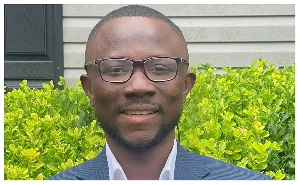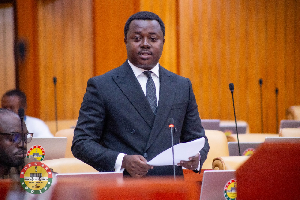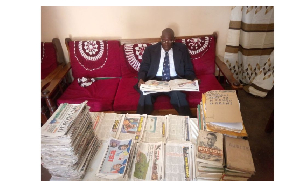The Centre for Public Opinion and Awareness (CenPOA) has criticized Vice President Dr. Mahamudu Bawumia’s proposal to introduce a national credit scoring system for Ghanaian mobile phone ownership and installment payment.
CenPOA’s Executive Director described the policy as populist.
Michael Donyina indicated that we can rather take advantage of creating opportunities by establishing businesses to assemble mobile phones here in Ghana instead of importing them.
He said the smart phone business is worth $1.5 billion annually, and if we take advantage and create businesses that can assemble them here instead of importing them, it would be much more affordable and also create jobs.
Importation is a significant issue affecting the stability of our local currency, and addressing it can lead to a stable economy.
Speaking on Frontline on Rainbow Radio 87.5 FM, he said “one of the major threats to the stability of our currency is importation. So if we put measures in place to produce the majority of the things we import locally, it will change a lot. Let me give you an example. The Vice President recently announced that his administration will roll out a national credit scoring system that will enable Ghanaians to own a mobile phone and pay it in installments. This is a populist policy.
I say this because the smart phone business in Ghana is worth $1.5 billion annually. So if there is that opportunity, why don’t we find ways and means to assemble the phones here in Ghana? The reason why people travel to China to assemble phones is because it is cheap. But the labour in Ghana is cheaper compared to China. But the reason why investors and business owners refuse to come to Ghana to do business is due to the excessive taxes.”
Mr. Donyina said his argument was not to downplay the credit scoring system.
However, it works best for people who are gainfully employed and receiving salaries.
“If the vast majority of the population is unemployed, with some persons suffering from lifelong unemployment—someone who, after school, could not find any gainful employment throughout their youth—and you propose credit scoring for such a person, then it is a misplaced priority.”
He stressed that “if people are gainfully employed and receiving salaries and you propose credit scoring, then it will work and will make a lot of sense. But if someone is unable to make ends meet and finds even GH¢1 to buy food, and you talk to the person about credit scoring, then you are not making sense.”
He argued that there are fundamental problems we have to address as a country, especially with the direction the country is heading.
“Credit scoring is a nice idea, but we have fundamental problems we need to address. We still have schools under trees. We have to tackle these fundamental issues. I am not claiming that these policies are bad, but my argument is that we need bold leaders with policies that will address our fundamental problems.”
He also commented on the NDC’s proposed 24-hour economy, arguing that although the policy is good, it should be driven by demand.
He said if we propose a 24-hour economy and produce items, and there is no demand for such products, then it defeats the purpose for which the policy was initiated.
He stated that the preference for imports for basic items produced in the country is causing a decline in local businesses.
“These are some of the issues we have to address before we focus on other things. For example, when you import a car into the country, the taxes on the car alone are almost two times the original cost of the vehicle. Meanwhile, a car is no longer a luxury but a means of transport in the 21st century. So we have fundamental issues to deal with instead of focusing on the superfluous ones. It will continue to be a cycle, and we will not have solved our fundamental issues.”
Business News of Sunday, 28 July 2024
Source: rainbowradioonline.com













